Paris, April 2025 — In a year marked by rising global interest in culturally rooted yet globally aligned education, France has quietly emerged as a hot destination for Islamic higher learning. International students, especially from Africa, Asia, and the Middle East, are turning their gaze away from traditional Western universities and toward a new academic frontier: Islamic universities in France.
The change isn’t just about faith. It’s about affordability, language accessibility, authenticity, and an evolving curriculum that balances Islamic knowledge with 21st-century skills. With a growing network of institutes offering robust Arabic programs, Islamic theology, law, finance, and even science and tech — all from an Islamic ethical perspective — France is now a surprising leader in Islamic higher education.
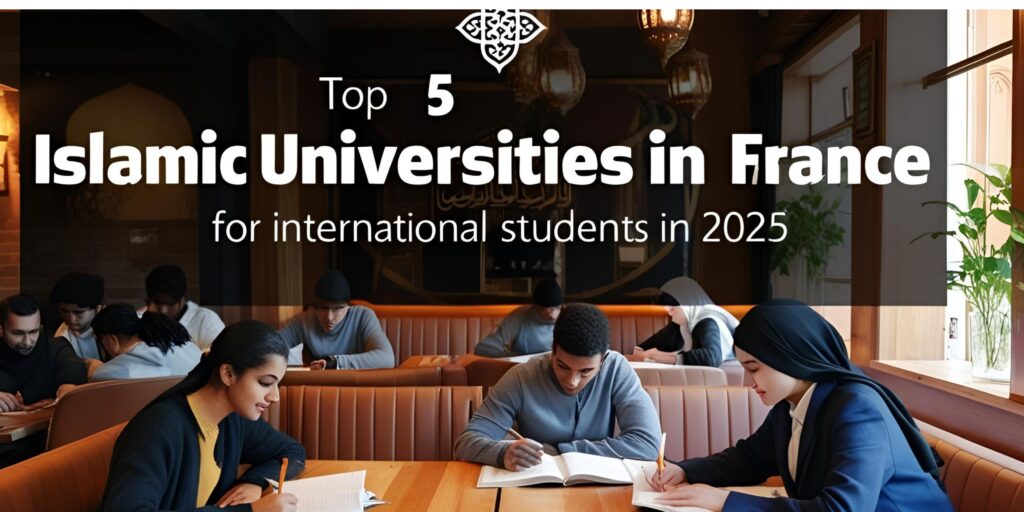
So, why is France suddenly becoming a magnet for Muslim (and non-Muslim) students from around the world? Let’s dive into the top 5 Islamic universities in France for international students in 2025 that are changing the game.
1. Institut Européen des Sciences Humaines (IESH), Saint-Denis
IESH Saint-Denis is often dubbed the Oxford of Islamic education in France, and it’s not an exaggeration. Located just outside Paris, this institution is well-established and offers a variety of accredited programs in Islamic theology, Arabic language, Quranic sciences, and education.
What makes IESH particularly attractive is its dual academic-religious track. Students can pursue a classical Islamic education alongside degrees that meet modern European academic standards. This fusion has made it a top choice for international students from over 40 countries.
- Tuition fees: Around €3,000/year (with housing support available)
- Language of instruction: Arabic and French
- Programs: Theology, Islamic law, Arabic pedagogy, Islamic finance
- Notable feature: Offers intensive Arabic immersion programs for non-native speakers
Why international students love it: The multicultural campus environment and student-led community initiatives create a welcoming and deeply rooted experience.
Read more:
2. Faculté Libre des Sciences Islamiques de Paris (FLSIP)
Located in the heart of the French capital, FLSIP is a modern Islamic university that appeals to urban-minded, globally connected students. It is known for its academic rigor, especially in Islamic jurisprudence, Quranic interpretation, and ethics in modern contexts.
FLSIP stands out by aligning its programs with European educational benchmarks, offering recognizable degrees that allow smooth academic or professional progression across the EU.
- Tuition fees: Starting at €2,500/year
- Languages: French and Arabic (some English-medium modules added in 2025)
- Programs: Comparative theology, Islamic finance, interfaith dialogue
- Unique feature: Active partnerships with universities in Belgium, Spain, and North Africa
Why it matters in 2025: FLSIP’s recent launch of a hybrid model for online + offline study is drawing digital nomads and remote learners from across the world.
3. Institut Al-Ghazali (part of the Grand Mosque of Paris)
For students seeking a more traditional yet prestigious learning environment, the Institut Al-Ghazali, under the Grand Mosque of Paris, is an intellectual sanctuary. Named after the legendary Muslim philosopher, the institute has long offered courses in Islamic theology, Arabic, and spirituality.
While it does not offer full academic degrees like some others on this list, its reputation and history make it a vital stepping stone for those who later move into degree programs at IESH or FLSIP.
- Tuition: Highly affordable (€500-€1,200/year)
- Language: Arabic primarily, with French support
- Focus areas: Classical Islamic studies, tajweed, hadith, fiqh
- Strength: High-quality instructors trained at Al-Azhar and other top institutions
International attraction: Students often combine studies here with internships, language exchanges, or research projects across Europe.
4. Université Averroès (Lille)
Université Averroès, named after the famous Islamic philosopher Ibn Rushd (Averroes), is one of the newer entrants in the Islamic higher education landscape in France, but it’s making bold moves. Based in Lille, this university emphasizes a holistic approach to Islam in modernity.
It provides interdisciplinary education that spans Islamic law, ethics, psychology, and sociology, and is known for actively engaging in public discourse and academic debates.
- Tuition: Approx. €2,800/year
- Languages: French and Arabic
- Programs: Contemporary Islamic thought, Islamic psychology, bioethics
- Highlight: Guest lectures from global Islamic scholars and EU policymakers
What international students appreciate: A balance of tradition with modern intellectual inquiry, all within a supportive and innovative space.
5. École Pratique des Hautes Études (EPHE), Paris – Religious Studies Division
While not a purely Islamic university, EPHE deserves a spot due to its academic prestige and strong programs in Islamic studies and religious scholarship. It draws serious researchers and postgraduate students from across the globe.
Here, Islamic studies are approached from interdisciplinary, historical, and sociopolitical perspectives, making it ideal for those looking to combine secular and sacred learning.
- Tuition: €300-€500/year (public university rates)
- Language: French and English
- Degrees offered: Master’s, PhD
- Specialization: Comparative religion, Islamic history, manuscript studies
Ideal for: Scholars, researchers, and students interested in combining Islamic knowledge with academic research methodologies.
Why France? Why Now?
You might wonder why France, often seen through a secular lens, is now home to such an impressive roster of Islamic institutions. The answer lies in demographic shifts, student demand, and state recognition of the importance of religious literacy in public life.
In 2025, France is making headlines for supporting inclusive religious education while maintaining academic autonomy. As global student mobility returns post-pandemic, the need for affordable, spiritually grounded, and internationally relevant education is at an all-time high.
And Islamic universities in France are stepping up. They’re not just centers of theology — they’re becoming launchpads for careers in finance, law, media, and education.
What Makes These Universities So Appealing to International Students?
- Affordability: Tuition fees are significantly lower than in the UK, US, or Canada. Scholarships are often available.
- Multilingual Education: With Arabic, French, and increasingly English as mediums of instruction, students can thrive linguistically.
- Academic Freedom: Many of these universities combine classical Islamic learning with critical thinking, interfaith dialogue, and social responsibility.
- Location: France’s central European position makes it a cultural and logistical hub.
- Cultural Relevance: Students from Africa, Asia, and the Middle East find familiarity in curriculum, food, and campus life.
A Quiet Revolution in Faith-Based Higher Education
The rise of Islamic universities in France is part of a broader redefinition of what it means to pursue higher education. No longer is prestige defined only by old stone buildings and seven-figure endowments.
Students in 2025 are more mindful, values-driven, and globally mobile. They’re asking questions like:
- Can I get a degree that aligns with my faith and modern career goals?
- Will I feel at home and be able to express my identity freely?
- Can I afford it without falling into lifelong debt?
In France, more and more students are finding the answer is “yes.”
FAQs
u003cstrongu003eAre these universities accredited internationally?u003c/strongu003e
Most of them hold recognition within France and the EU, and some have dual-degree partnerships with global universities.
u003cstrongu003eIs knowledge of Arabic or French required?u003c/strongu003e
Basic knowledge helps, but many offer intensive language prep or English-medium courses.
u003cstrongu003eCan non-Muslim students enroll?u003c/strongu003e
Yes. Many Islamic universities in France are open to all students and promote interfaith understanding.
u003cstrongu003eDo these universities offer online programs?u003c/strongu003e
Yes. Since 2025, many have added flexible or hybrid learning modules for international students.
u003cstrongu003eWhat career paths are available after graduation?u003c/strongu003e
Graduates work in Islamic finance, law, education, NGOs, international relations, and more.
Final Word: More Than Just Education
France offers international students more than just classrooms and campuses. It provides an experience that blends **education, identity, affordability, and excellence**. The top 5 Islamic universities mentioned are not mere options; they are **opportunities for global citizens** seeking the best of both worlds.
In a world where education is being reimagined, Islamic universities in France are proving that tradition and innovation don’t have to be opposites — they can be partners.
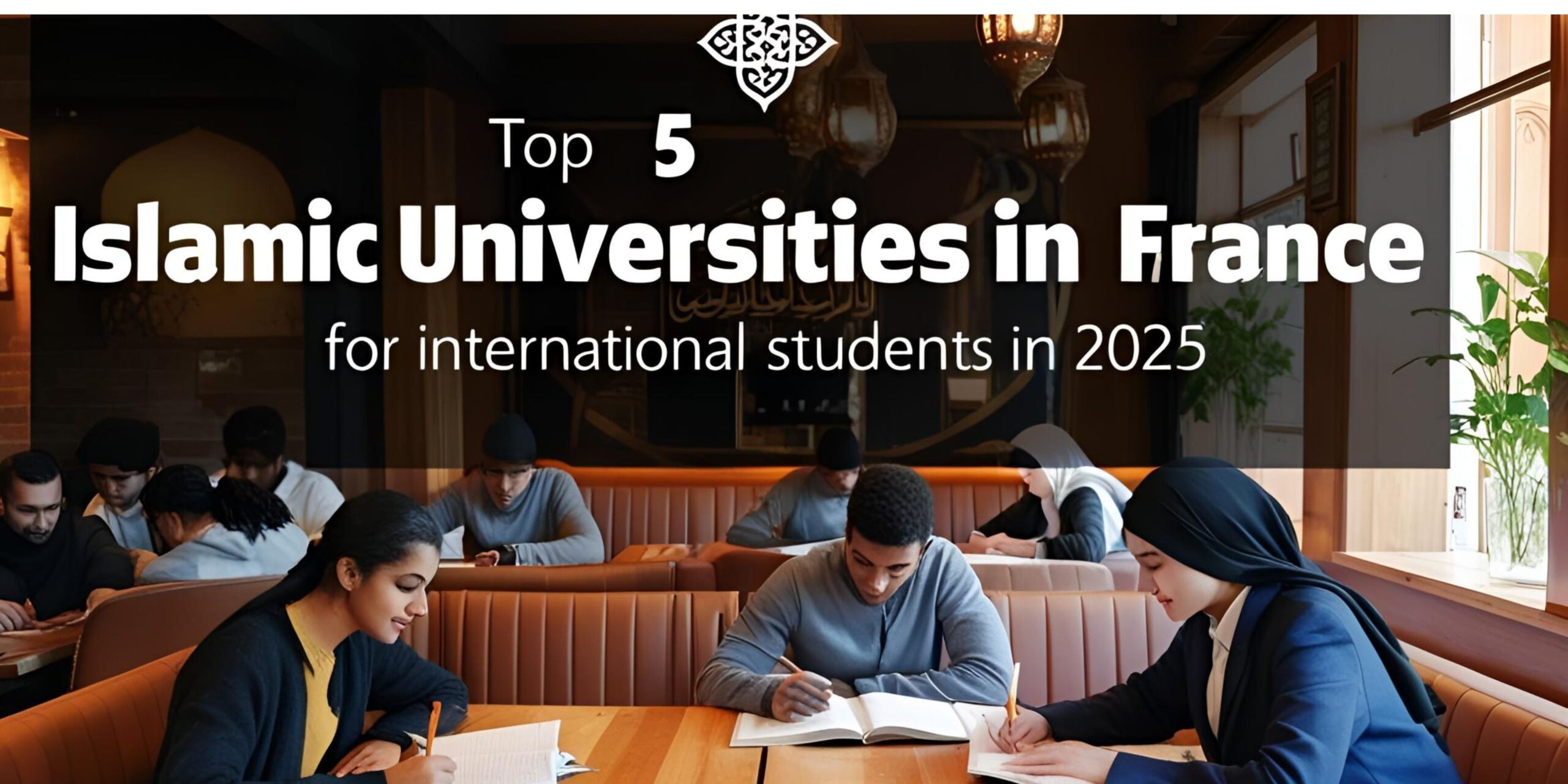

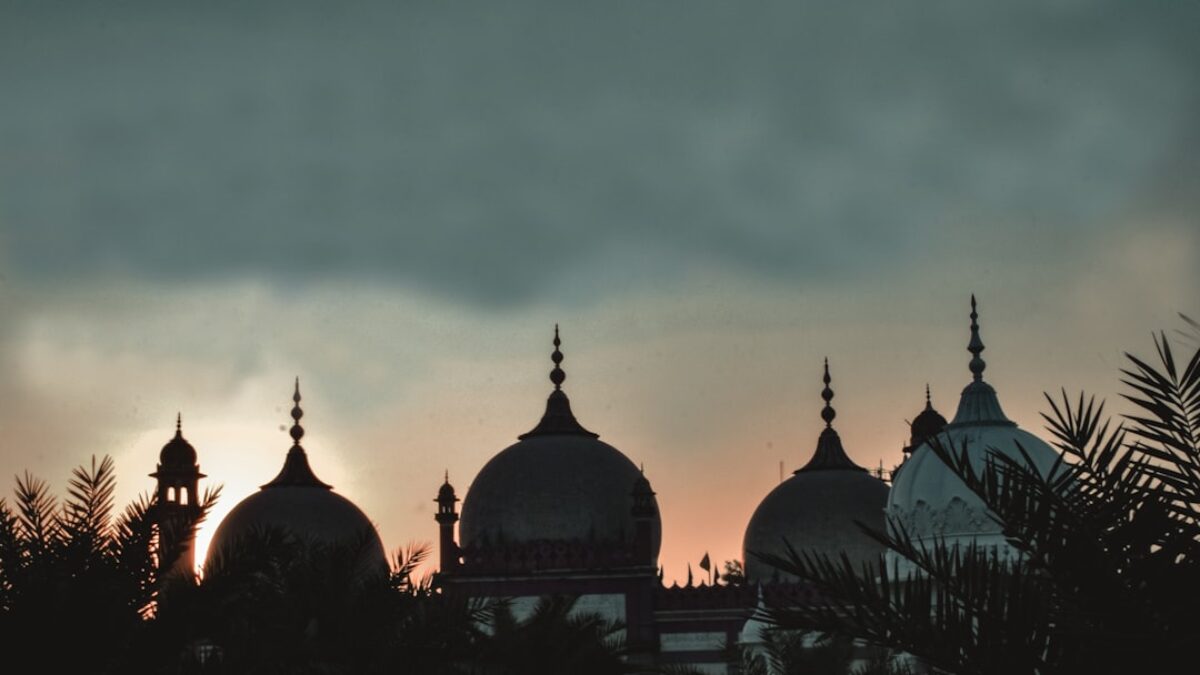
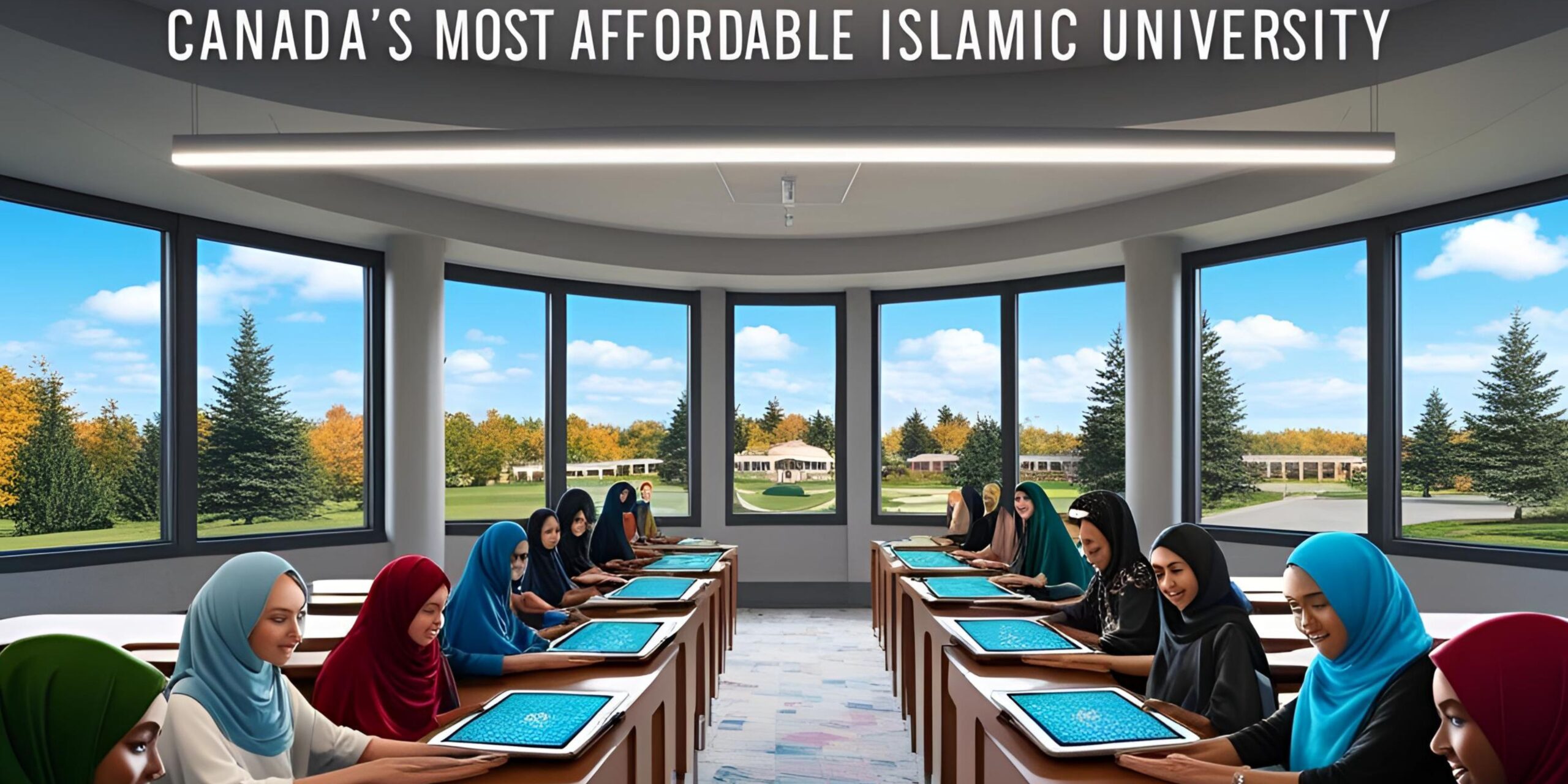









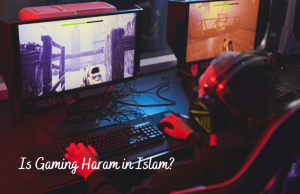










Post Comment